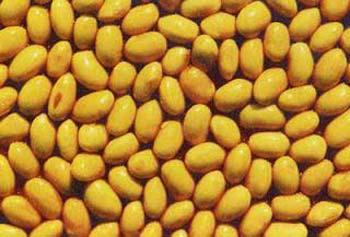Source: China Daily
03-23-2009 16:25
SUNDAY, March 22 -- Certain proteins found in the yellow garden pea appear to help lower blood pressure and delay, control or even prevent the onset of chronic kidney disease, at least in rats, a Canadian study has found.
 |
| Certain proteins found in the yellow garden pea appear to help lower blood pressure and delay, control or even prevent the onset of chronic kidney disease, at least in rats. |
"What we seem to have here is sort of a natural approach to treating this disease, as opposed to the normal pharmacological approach," said the study's lead author, Rotimi E. Aluko, an associate professor in the department of human nutritional sciences at the University of Manitoba in Winnipeg. "We're talking about an edible product, not a drug, which can help to reduce blood pressure and, at the same time, reduce the severely negative impact of kidney disease."
Aluko and his colleagues were to present their findings Sunday at the American Chemical Society's national meeting in Salt Lake City. The study was underwritten by several Canadian government entities.
Kidney disease affects an estimated 13 percent of American adults, the authors noted, and is a notoriously difficult disease to treat, with most people eventually succumbing to cardiovascular complications from high blood pressure linked to kidney malfunction.
Because of this, the researchers focused on the potential effect on blood pressure that might come from peas, long-heralded as a cholesterol-free source of fiber and protein.
After purifying a mix of yellow garden pea proteins, collectively called "pea protein hydrolysate," the researchers spent eight weeks feeding the derivative to rats that had kidney disease.
They found that blood pressure dropped 20 percent in the rats treated with the pea protein mixture, compared with the blood pressure of untreated rats.
They also found that urine production, which can be severely curtailed by kidney function breakdown, improved by upwards of 30 percent among the treated rats.
